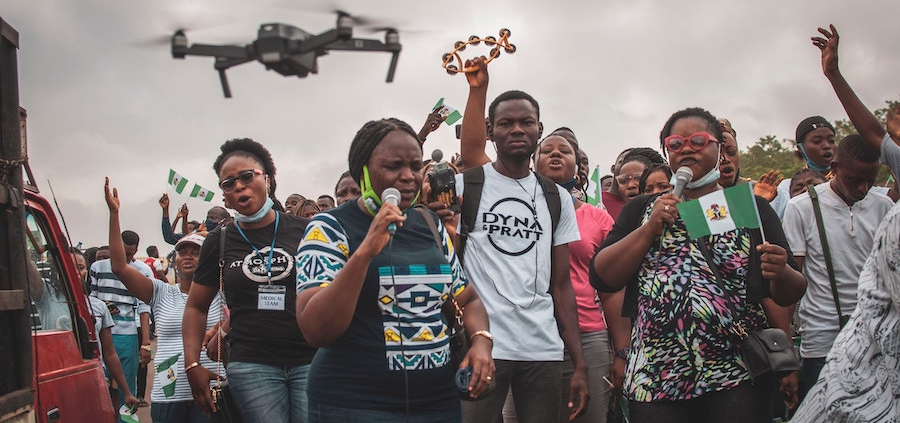Nigeria’s Catholics Must Reject Calls to Arms by Ray Mwareya
In June, terrorists launched a dastardly attack at the end of a Catholic Mass in Ondo state in southwest Nigeria. Fifty worshipers were reportedly murdered and dozens more injured. It’s among the worst single terrorist attacks on Catholics in Nigeria or across Africa in recent memory.
There are conflicting explanations as to the motive behind this atrocity. The governor of the Ondo state along with a leading lawmaker speculated that the attack had been carried out by ethnic Fulani terrorists. The Fulani people are the world’s largest nomadic group, with an estimated population of 25 to 40 million. About a third are pastoralists who graze livestock. They are primarily Muslim.
Fulani extremists are suspected of having staged numerous attacks, predominantly in northern Nigeria but also other parts of the country. Their grievances are rooted in conflicts with farming communities over land use and disputes about the government’s restrictions over grazing land. However, it is important to note that the Fulani are made up of diverse linguistic and cultural communities, and not all hold extremist views.
In another view, the Nigerian federal interior minister, Ogbeni Aregbesola, speculated that the Islamic State of West Africa Province (ISWAP), which is trying to expand its foothold across the nation, was the orchestrator of the June attack. The confusion stems from the fact that Ondo had been one of the more peaceful Nigerian states until clashes between farmers and herdsmen became more violent in recent years.
Wherever the blame lies, the odious targeting of Nigerian Catholics is no coincidence. If the ISWAP is involved, as this writer thinks, one of their dastardly aims is to provoke Nigeria’s Catholics into a web of hate that pits Christians against Muslims in Africa’s most populous country. Most Christians and Muslims in Nigeria live side by side in peace and are all victims of terror. The majority of Nigerians reject sectarian divisions and hate.
It is very important for Nigeria’s Catholics, though grieving, to shun the terrorists’ ultimate machinations. Why? Because as the aftermath of this murder reverberates across Nigeria, the governor of Zamfara, the state most impacted by violence, has said that citizens will now be allowed to carry guns and defend themselves against armed terrorists. It’s a first in Nigeria for citizens to be allowed to carry arms for self-defense.
Catholics in Nigeria must carefully weigh this new law and keep in mind the Holy See’s recent call for peace and search for social harmony in Nigeria. The Bishop of the Catholic Diocese of Ondo bravely simplified this noble call to peace, saying: “The bishop has advised everyone to remain calm and law abiding. . . . Kindly do not spread fake news that could incite religious and political misunderstandings.”
With a population of over 200 million, Nigeria is Africa’s largest nation. A hastily announced civilian call to arms won’t help ensure the security of Catholics and non-Catholics across Nigeria. Weapons in the hands of untrained people can be used to settle scores via unlawful means. Also, a call to arms brings into focus an undesirable predicament: weapons could proliferate in quantity and land in the hands of terrorists.
If the Nigerian state bureaucracy allows citizens to use force against armed herder bandits and the ISWAP, it could have an unintended consequence: herders could be driven into deeper cooperation with terrorists like the ISWAP.
For Catholics and Nigeria’s civilians, the most effective way forward is to heed the Bishop of Ondo’s message: “Be more alert and security conscious.” That means honest, legal, transparent cooperation between Nigeria’s Christians, non-Christians, Muslims, and police.
That way, the dark motives of terrorists sowing sectarian strife won’t succeed. ♦
Ray Mwareya is the recipient of the 2016 UN Correspondents Association Media Prize.





Leave a Reply
Want to join the discussion?Feel free to contribute!